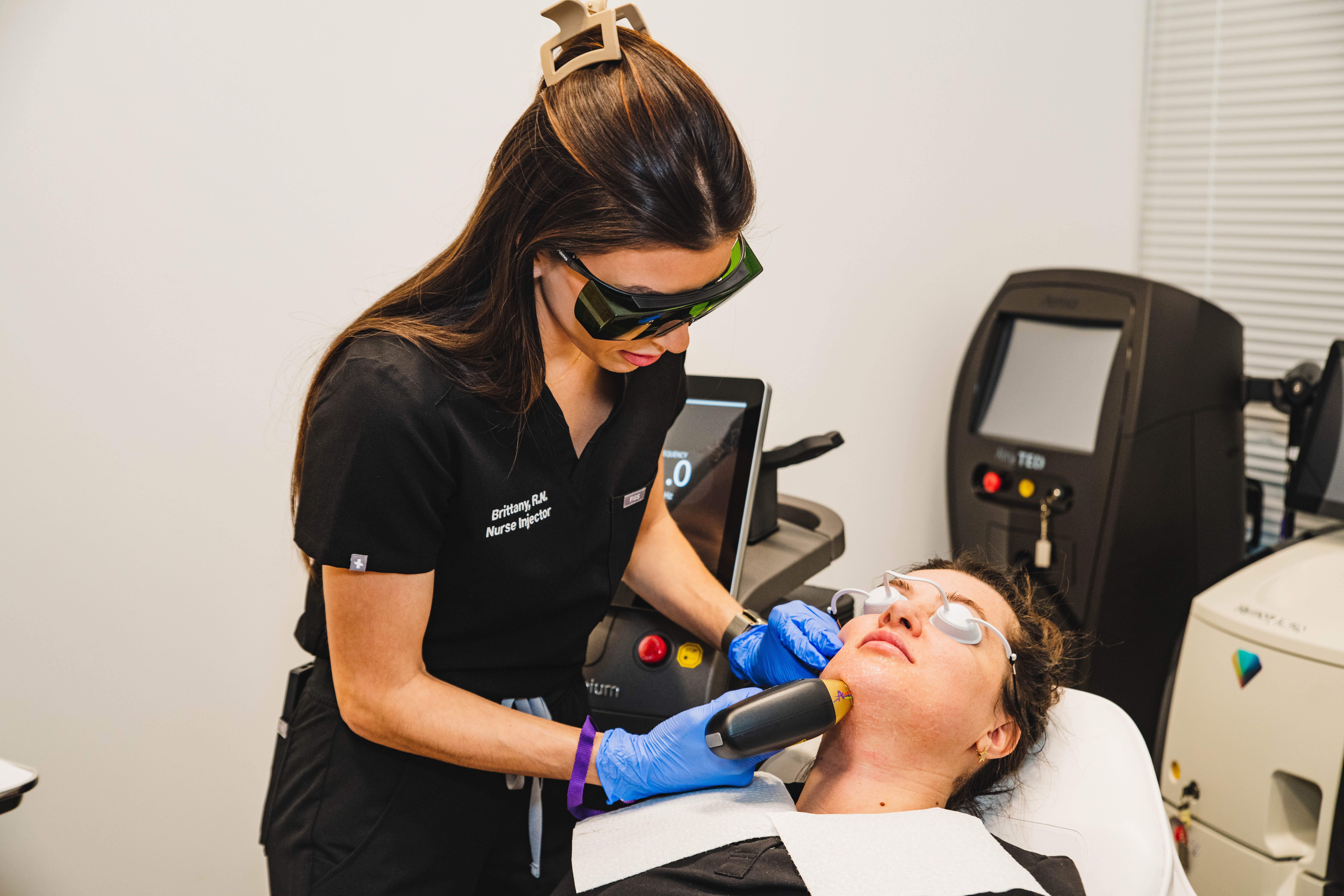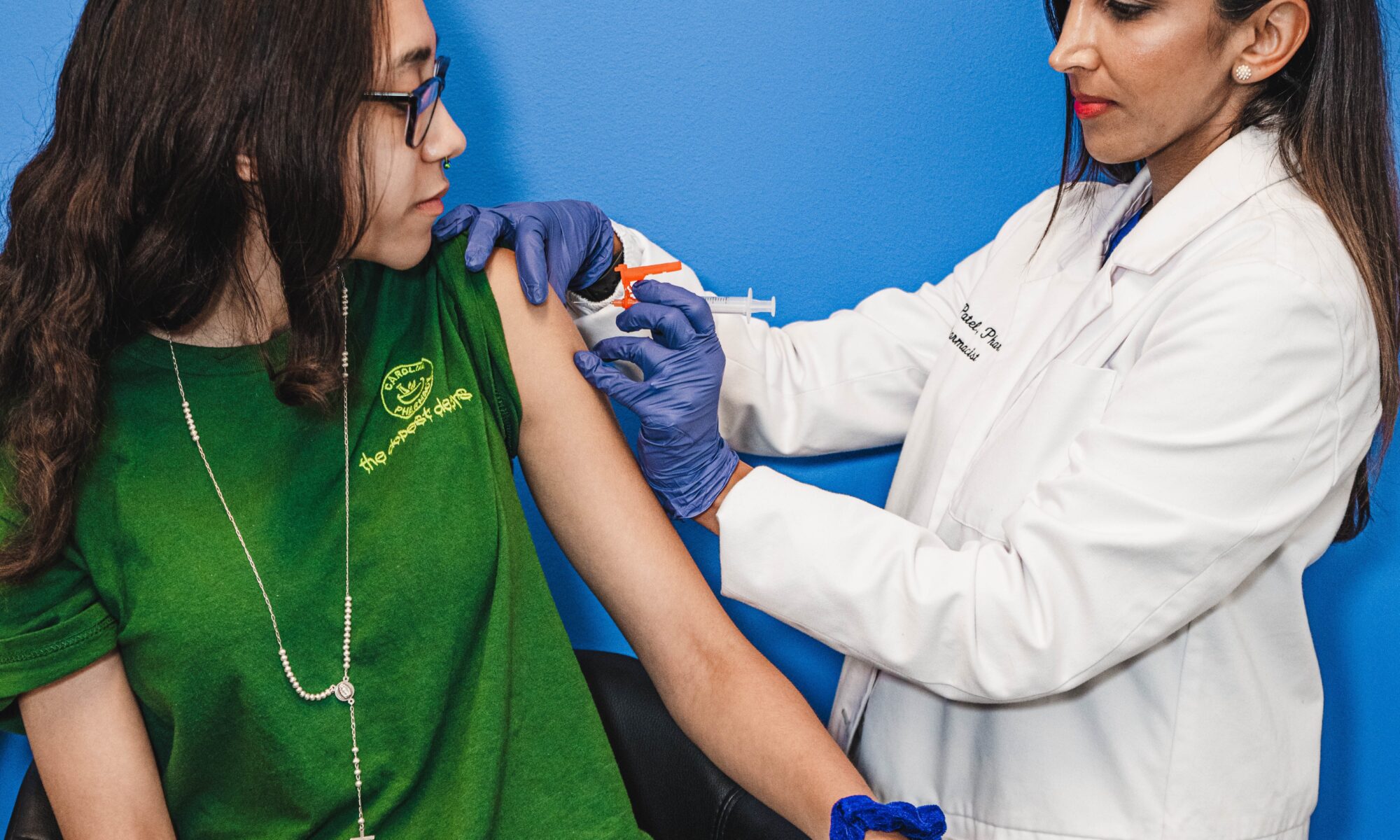The arrival of a new year often signifies the beginning of a new chapter for many individuals. For some, this means setting health and beauty goals like shedding excess pounds, adopting a more nutritious diet, and improving skin health. While these resolutions are easy to make and break, Carolina Pharmacy is committed to helping you achieve your health and beauty goals with top-tier med spa services in Charlotte, NC, Rock Hill, and Lancaster, SC.
Top 5 Medical Spa Services To Improve Your Health and Beauty in 2024
Here are the top 5 med spa services we offer to help you glow from within and look your absolute best this year:
1. Weight Loss Treatment
Embarking on a weight loss journey isn’t just about shedding extra pounds; it’s about gaining a new lease on life. Beyond the surface, these extra pounds not only increase your risk of developing health conditions like heart disease and diabetes but also affect you psychologically, impacting your body image and self-esteem.
At Carolina Pharmacy, we offer tailored weight loss treatment in Charlotte, NC, Rock Hill, and Lancaster, SC, to help you experience a transformation that enhances your physique, boosts your confidence, and improves your overall well-being. This weight loss treatment goes beyond conventional methods, offering a medically supervised approach tailored to your body’s needs. We empower you to achieve sustainable results through a combination of nutritional counseling, personalized fitness plans, ongoing support, and medications like Semaglutide, Contrave, Wegovy, Ozempic, Mounjaro, and Phentermine.
2. Dermal Fillers
As we journey through the natural aging process, our skin seeks to reclaim its once-vibrant vitality and fullness. Thankfully, our Restylane and Juvederm dermal fillers in Charlotte, NC, Rock Hill, and Lancaster, SC, are poised to fulfill this desire, offering quick enhancements by diminishing fine lines and wrinkles, redefining facial contours, and volumizing lips, aiding in your pursuit of timeless beauty. Delivered by our skilled professionals, this FDA-approved anti-aging solution offers a safe and effective way to refresh your look with natural results that celebrate your beauty.
This treatment is customizable to address your unique beauty goals. It also delivers swift improvements, enabling you to revel in a more youthful, glowing appearance shortly after treatment, all with minimal interruption to your daily life.
3. Hair Restoration
Experiencing hair loss and hair thinning can be disheartening, affecting not just your appearance but also your self-esteem. At Carolina Pharmacy, we understand hair’s profound impact on your beauty and overall well-being. That’s why we’re proud to offer ALMA TED hair restoration treatment in Charlotte, NC, Rock Hill, and Lancaster, SC, so you can confidently reclaim your hair.
Our safe, quick, painless, and non-invasive treatment utilizes the latest advancements in hair regrowth technology to stimulate your hair follicles, promoting new growth and restoring your hair’s natural thickness and vitality. Whether you’re facing the early stages of hair thinning or more advanced hair loss, our personalized approach ensures you receive a treatment plan tailored to your specific condition and goals.
4. Laser Skin Treatments
Our laser skin treatments in Charlotte, NC, Rock Hill, and Lancaster, SC, are the luminaries of skin care, offering a versatile solution to many skin concerns. Whether you want to diminish acne and wrinkles, fade pigmentation, or banish unwanted hair, our state-of-the-art laser treatments are tailored to your skin’s unique needs. Our specialists target imperfections with precision and care, promoting a flawless complexion and improving overall skin health.
Contact us today to discover the transformative benefits of laser skin treatments and emerge with beautiful skin that radiates health from within.
5. Skincare Products
The products you use matter in the quest for radiant, youthful skin. That’s why we’re proud to offer an exclusive range of premium medical-grade skincare products that have been carefully selected for their effectiveness, quality, and ability to deliver remarkable results for all skin types.
Our medical-grade skincare line includes everything from rejuvenating serums and moisturizers designed to nourish, protect, and revitalize your skin from the inside out to targeted treatments for specific concerns like aging, acne, and hyperpigmentation. Contact our expert team today to determine the perfect products for you and elevate your skin care regimen to new heights.

Transform Your 2024 with Unparalleled Med Spa Services in Charlotte, NC, Rock Hill, and Lancaster, SC
As we navigate through 2024, let our med spa services in Charlotte, NC, Rock Hill, and Lancaster, SC, be your partner in achieving your health and beauty goals. With our comprehensive range of services, expert team, and commitment to excellence, we are here to support you in your journey towards a more confident and radiant you. Contact us today and take the first step towards a transformative year.





















